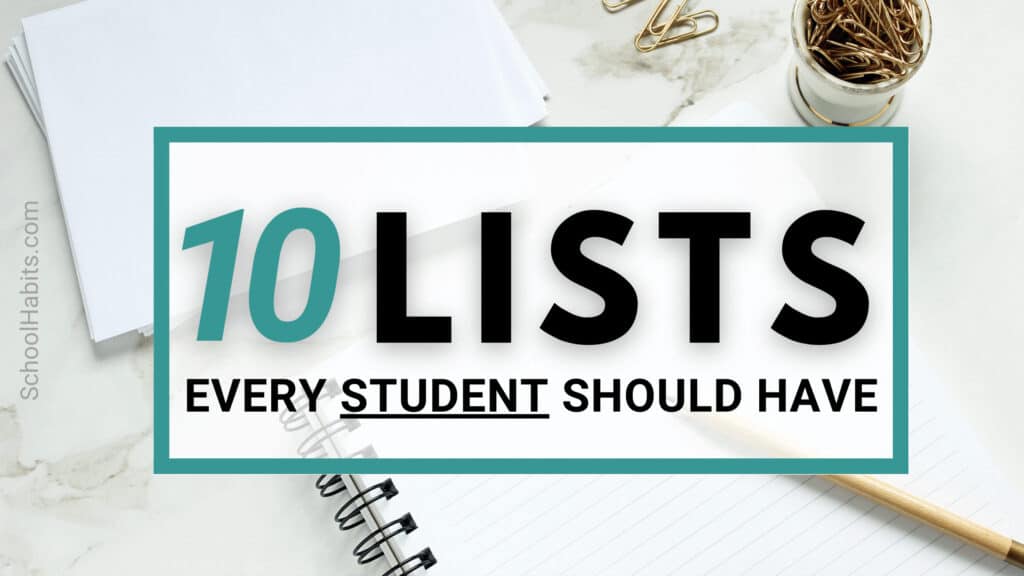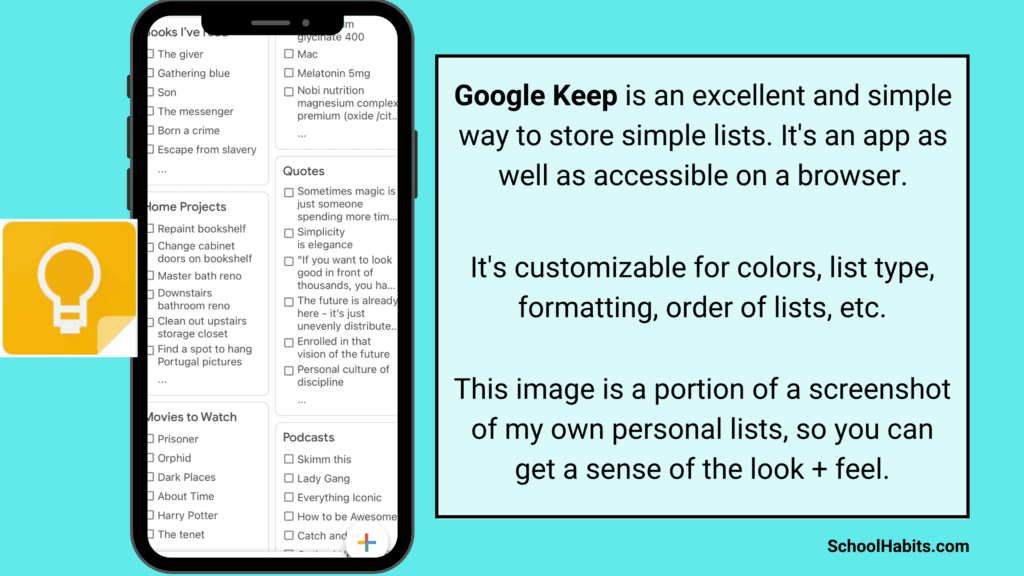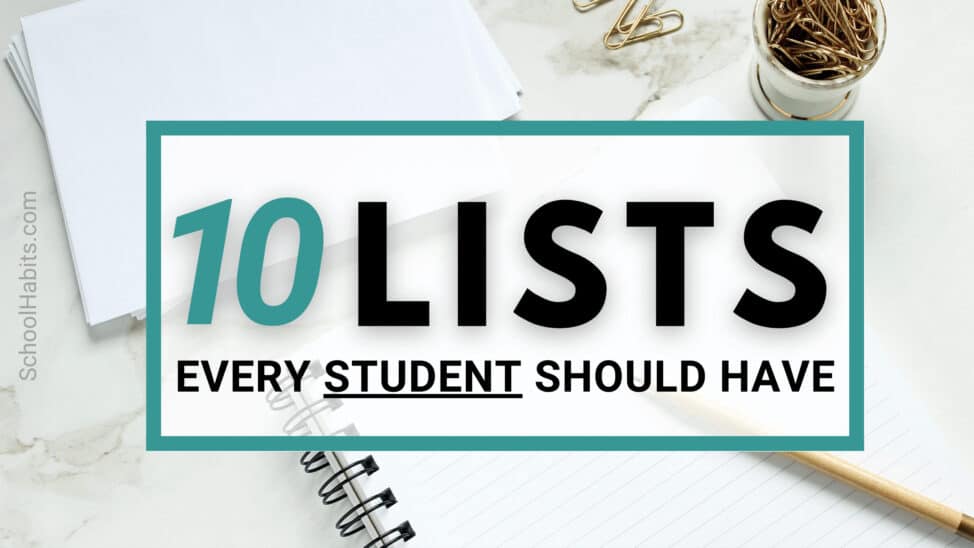
By Katie Azevedo, M.Ed.
While the human brain is unfathomably amazing, it’s not meant to store large amounts of unconnected information. That’s why we have lists. Lists externally store non-urgent data for future reference.
Using lists can reduce stress, increase the accessibility of information, help you stay organized, and strengthen skills that you’ll need as an adult. (These are called executive functions, and they’re important.)
Below are 10 lists that every student should have. There are endless ways to track and store these lists, but I’m a die-hard fan of Google Keep. If you use any of the Google products (Gmail, Docs, Slides, etc.), you have access to Google Keep. It’s highly customizable (format, colors, etc.); below is an image of my own personal list collection so you can get an idea.

If you quickly scan the 10 lists below, you’ll realize there’s a very noticeable list missing: your assignment list. I deliberately excluded your assignments list from this article, which I explain in #2 below.
10 lists every student should have
1. Goals
Goals can be short-term or long-term. They can be secret goals you keep to yourself, or goals you talk openly about with others. The first step to ever achieving a goal is to write it down. (The next step in achieving your goals is to make a plan, like this.)
2. To-do list
Your to-do list is not the same as your assignment list. You should use a separate assignment notebook to track and manage your homework. (Here’s how.) This to-do list would be where you’d write down non-urgent tasks, such as finding a summer job, working on your resume, researching dog breeds, beginning the college-search process, opening a checking account, and things like that.
3. Books to read
Any time you get a book recommendation, add it to your list. If you see a book at the library that looks good, but you don’t have time to read it, add it to your list. This list will come in handy when you’re picking your next title.
4. Books you’ve read
There are two reasons why you should keep a list of books you’ve read. First, this list will prevent you from forgetting if you’ve already read a book, so you won’t accidentally grab a repeat from the library. Second, if anyone asks you for a book recommendation, you can just look at your list. You could even add a thumbs up or thumbs down emoji next to each title so you remember if you liked the book enough to recommend it.
5. Usernames, passwords, and login information
There are password apps like 1password and Lastpass, which some people swear by. I also know that certain browsers store your usernames and passwords, which is another way to bypass the whole login process. However, every student should keep a simple list of important website URLs (to the actual login page), usernames and passwords to the sites you visit the most. Update this list whenever your login credentials change.
6. Quotes or expressions
Any time you come across a quote, phrase, or expression that you want to remember, add it to your list. Sometimes we hear cool expressions during the day or see an inspiring quote online or in a book that we don’t want to forget. Now you’ll have a place to store them.
7. Podcast recommendations
If you’re not a podcast listener, you’re missing out. Seriously. There is something for everyone. With that said, keep a list of podcast recommendations (from your friends, from other podcasts, etc.) so you’ll never be without an idea of what to listen to next.
8. TV show recommendations
Keep a list of TV shows your friends recommend, shows you see previews for and shows that you’ve watched but that are coming out with a new season (add the release date in this case).
9. Ideas
This is one of my favorite lists. It’s different than your goals list (#1) because it’s more open-ended and “whatever-y.” What goes on this list depends on what types of ideas you have. If you’re a musician, you might write ideas for songs. If you’re on the student council, you could write ideas for class fundraisers. If you’re applying to colleges, this list might include things you’re looking for in a campus.
10. Contact information of important people
While you likely have your friends’ and family’s contact information stored in your phone, keep a list of contact information for people who don’t fit one of those two categories. The list could include people from school, work, or internships.
The above lists are the lists every student should have, no matter your grade or age. Again, our brains are not designed to store information unless it’s directly related to our survival, so once you get these lists going, you’ll free up valuable brain space for other things. Like thinking.

